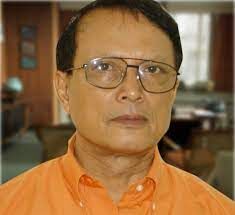
James Michael Lyngdoh is an Indian civil servant and was Chief Election Commissioner of India from 2001 to 2004. He was awarded the Ramon Magsaysay Award for Government Service in 2003.
Born on 8 February 1939, he completed his Senior Cambridge at St Edmund’s School and joined St Stephen’s College, Delhi. Lyngdoh entered the IAS at the age of twenty-two. Probity and toughness became the hallmarks of his style of administration. In one early posting, his principled execution of mandated land reforms so enraged landlords that he was transferred before the stipulated term. Similar clashes with the powers-that-be marked his rise in the Service. He eventually served as Secretary, Coordination and Public Grievances, Government of India. In 1997, the president named him one of the three election commissioners. He became the Chief Election Commissioner in 2001.
In July 2002, S S Bhandari, Governor of Gujarat, on the recommendation of the State Cabinet headed by Chief Minister Narendra Modi, dissolved the Gujarat Assembly nine months before its term was due to end. It was an attempt to force the Election Commission to hold early elections. The Election Commission, headed by Lyngdoh, ruled out early elections in Gujarat. Modi insinuated that the reason the Election Commission had delayed holding the Gujarat assembly elections was that Lyngdoh was a Christian. He hit back at Modi for attacking him on religious grounds, saying it was "quite despicable" and "gossip of menials" by those who have not heard of atheism. In October 2002, the Supreme Court of India upheld the Election Commission's order to defer assembly elections in Gujarat.
In 2004, he published a book titled "Chronicles of an Impossible Election ". The book received widespread acclaim and praise. He has frequently expressed his disdain for politics and politicians. After winning the Ramon Magasaysay Award, he was asked what advice he had for fellow bureaucrats. Lyngdoh said, "Keep away from politicians as they may spread cancer."
In 2013, he expressed in views on "Decriminalization of Indian Electoral system" at the quarterly lecture series organised by the Centre of Public Policy Research (CPPR). He remains active in public life after retirement. He is one of the members of India Rejuvenation Initiative, an Indian anti-corruption organisation formed by a group of retired and serving bureaucrats. He opined that the Election Commission should take charge of even the internal elections of political parties, since, in his opinion, that is the only way to ensure democracy.
*Collected from the public domain
*Updated on 28/08/2025
© indiachristians.in is Made with by Siona Solutions